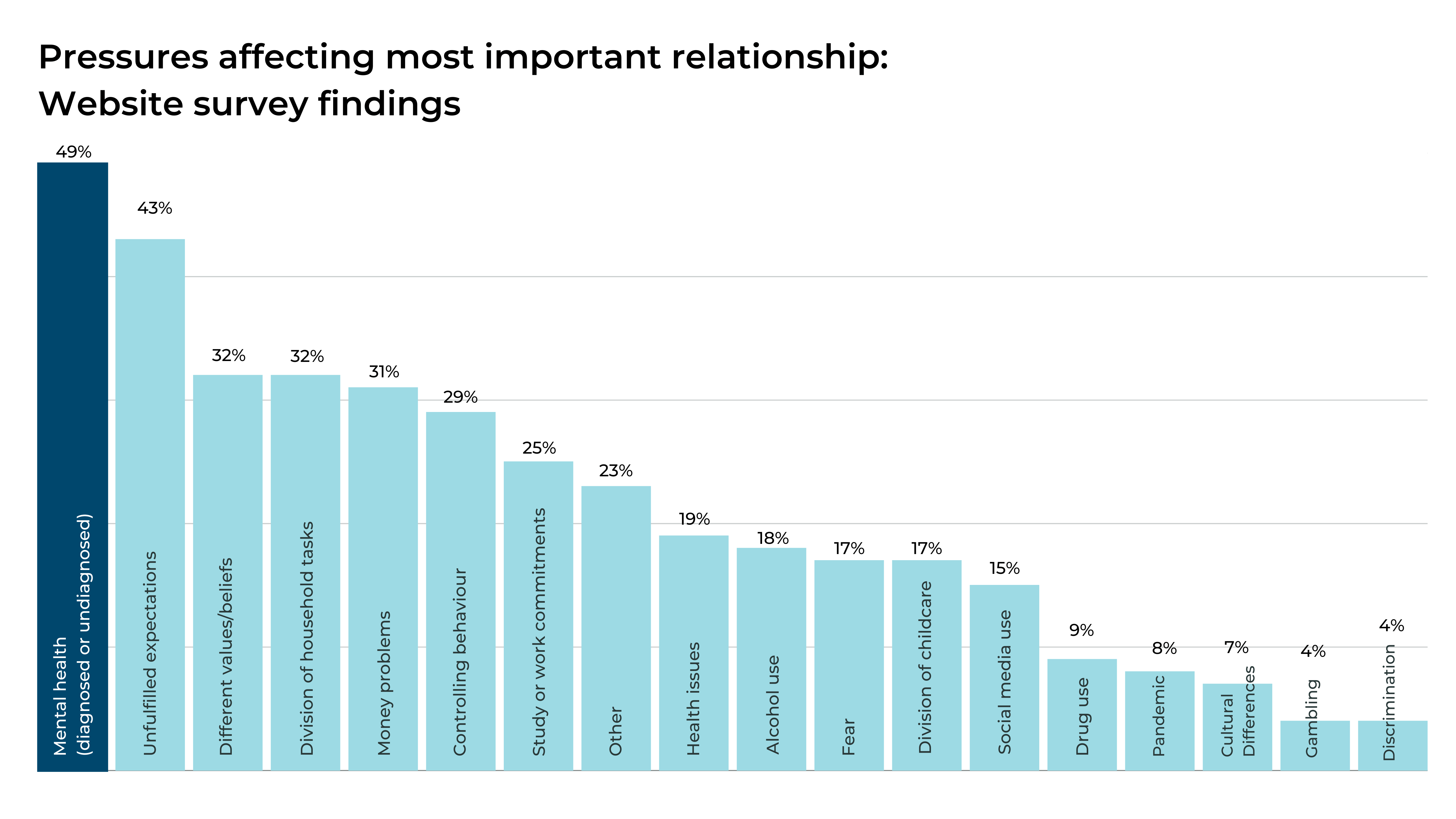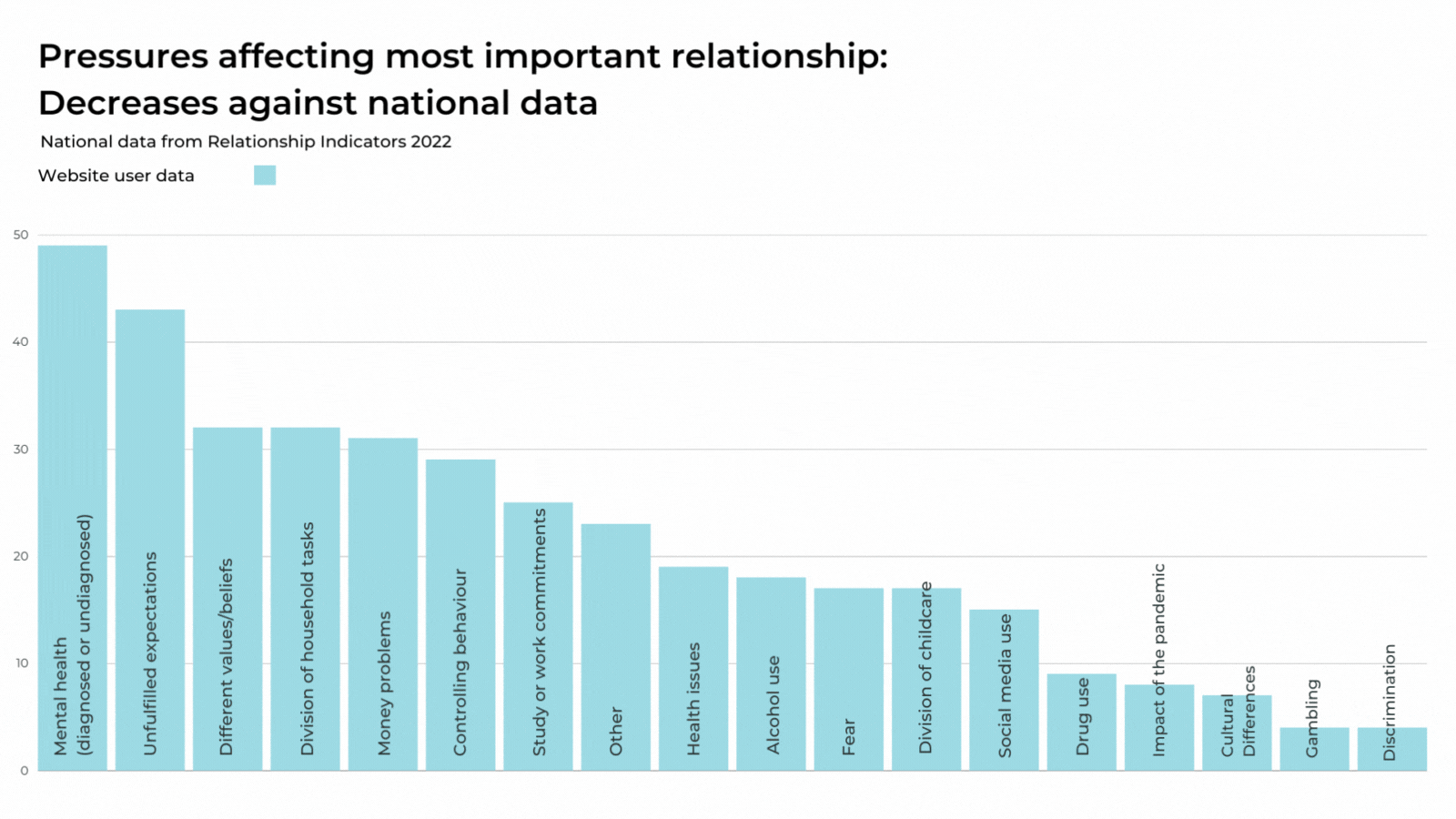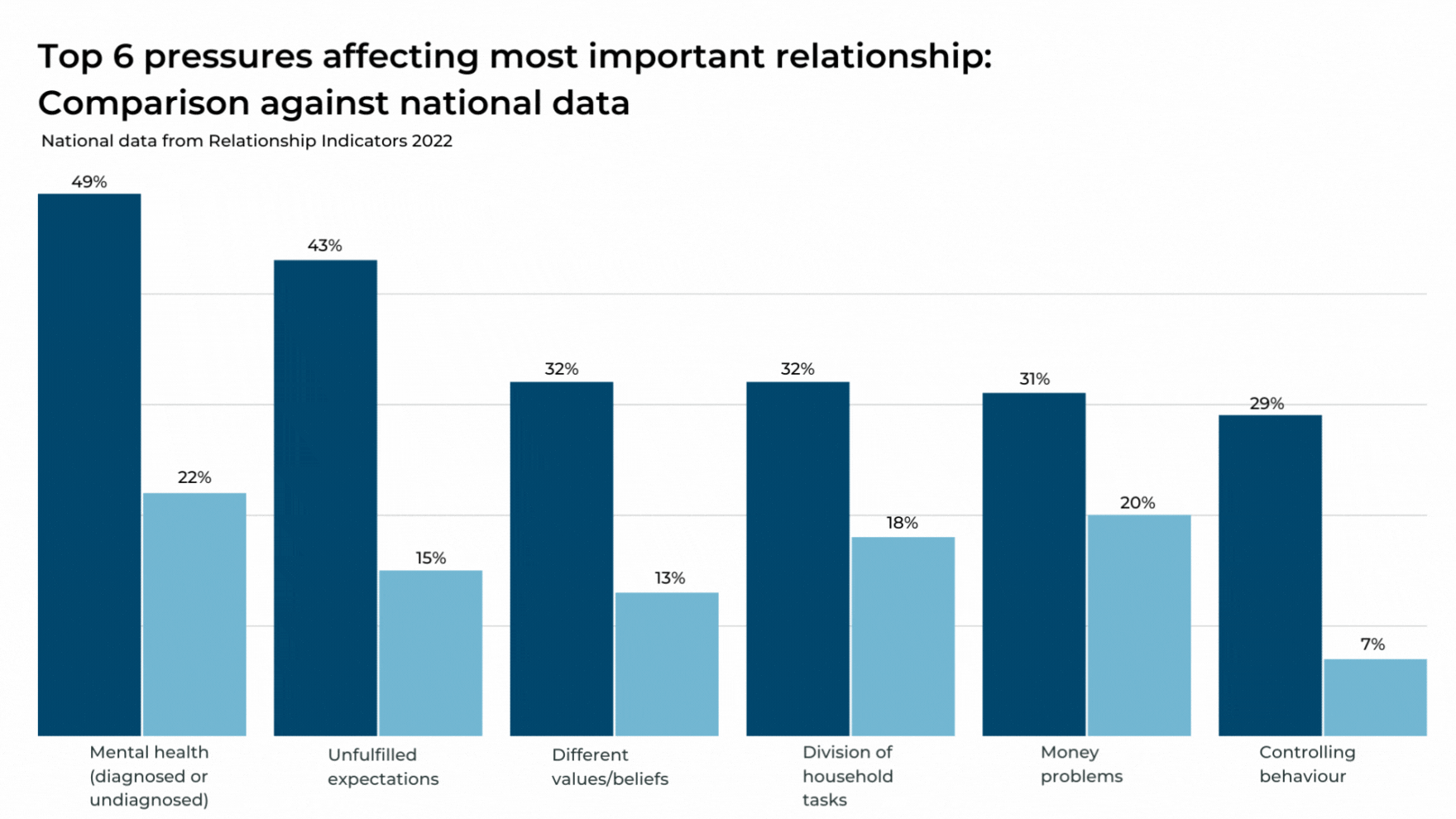Key Findings
 We asked our website users about the pressures affecting the most important relationship in their life – Almost 1 in 2 (49%) people said mental health was affecting their relationship. When compared with national data, mental health appears to affect our website users at twice the rate of the general population.
We asked our website users about the pressures affecting the most important relationship in their life – Almost 1 in 2 (49%) people said mental health was affecting their relationship. When compared with national data, mental health appears to affect our website users at twice the rate of the general population.
Other key issues included unfulfilled expectations (43%), division of household tasks (32%), money problems (31%) and controlling behaviour (29%). While many of these may reflect common relationship frustrations, controlling behaviour could be an indication that more abusive patterns are present in a relationship. While power exists in every relationship – a healthy relationship is based on equality and respect. If you are worried about controlling behaviour in your relationship, you can read our blog on the key signs of coercive control, or find a service near you.

Our national data, which was collected using the Relationship Indicators survey, found the most common pressures for the general Australian population were study or work commitments (25.8%), mental health (22.1%) and money problems (20%).
This latest survey provides insight into the kinds of relationship challenges that motivate people to seek support from organisations such as Relationships Australia. People on our website were challenged by fundamental differences in values, beliefs and expectations at much higher rates than the Australian average. They also cited more tangible issues, including behavioural concerns like the unequal division of household tasks. National data shows that only 6% would seek professional support for a relationship issue. This survey suggests that when people do seek support, by visiting our website, they are more likely to be facing foundational differences in perspective or complex behavioural challenges, as opposed to only facing challenges with work or study commitments, which was common in the general Australian population.

These findings are reflected in the literature. Research shows that affective issues, such as communication problems, incompatibility and infidelity, abusive behaviours and external pressures like financial problems, are the leading causes of divorce in Australia (Wolcott & Hughes, 1999). However, our research indicates that the impact of mental health on relationships appears to be growing, or at the very least, greater recognition and acknowledgement of its effects.
How do these pressures make you feel?
Our website users are also facing relationship challenges at much higher rates than the general Australian population. The average Australian faces between 1 to 2 relationship challenges, whereas our website users identified 3 or 4 pressures affecting their important relationship. Additionally, among website users, women reported more relationship challenges than men (an average of 4 versus 3). There was no discernible difference between genders in the national dataset.

These findings are concerning, given that Relationships Australia has demonstrated that experiencing pressures in your relationship negatively impacts your relationship satisfaction and personal wellbeing, as well as producing higher rates of loneliness.
This survey was conducted in April 2023, while the national data was collected in June 2022. Consequently, only 8% identified the impact of the pandemic as a pressure on their relationship this year, compared with 18% in June 2022.

Despite this, both data sources demonstrate the ongoing impact the rising cost of living is having on people’s relationships. Money problems affect 1 in 5 Australian relationships and almost 1 in 3 website users’. We also cannot underestimate the interconnectedness between relationship challenges. For example, worrying about money can affect your mental health. It is a common cause of stress and anxiety and is shown to reduce recovery rates from mental health conditions (Money and mental Health Policy Institute via Mental Health Australia 2022). It is therefore conceivable that other pressures, including division of household tasks, unfulfilled expectations, alcohol use and others are all impacted and compounded by the rising cost of living.
Attempts to isolate these challenges from one another fails to recognise how relationships are constantly shifting and changing in response to a variety of internal and external pressures. What is most notable about these survey comparisons is the obvious complexity facing those seeking help. Most people are coming to our website with 3 or 4 major relationship concerns, with some citing up to 12 separate challenges. These findings highlight the importance of embedding a variety of mechanisms which empower people to overcome challenges in their relationships. This should include policies which prioritise relationship wellbeing across portfolios. It should also involve a variety of easily accessible, culturally-appropriate and trauma-informed service options for people. Finally, given the low rate of professional help-seeking in the general population, it is also important we equip everyday people with the tools to manage relationship pressures and refer to professional support when necessary.
References
Mental Health Australia (2022). Cost of Living and Mental Health (Issues Paper). Found: https://mhaustralia.org/sites/default/files/docs/issue_paper_-_cost_of_living.pdf
Wolcott, I., & Hughes, J. (1999). Towards understanding the reasons for divorce (Working Paper No. 20). Melbourne: Australian Institute of Family Studies.

